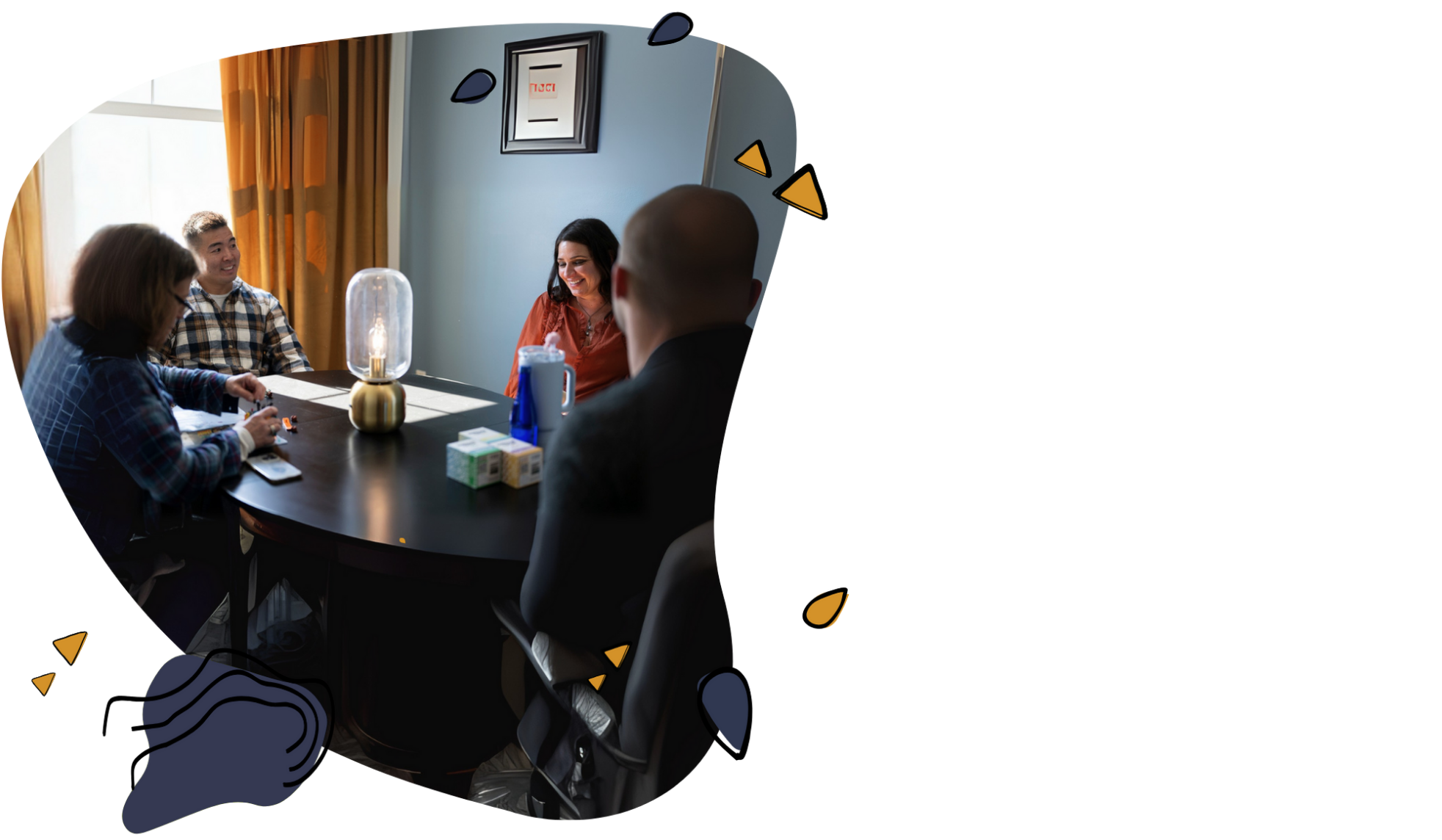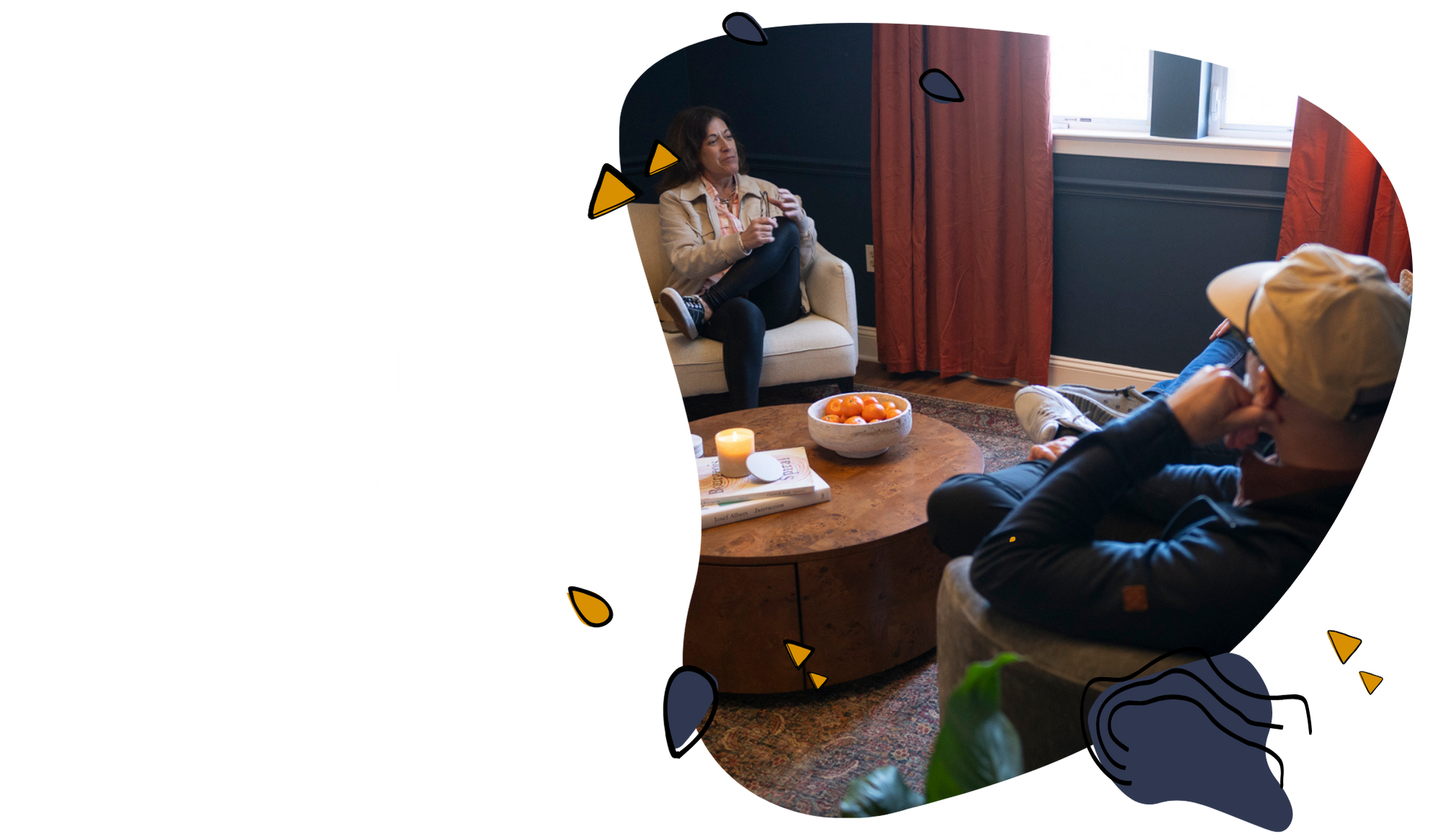Family Therapy
At GIA Institute of Psychotherapy, we take a family therapy approach, especially with our child therapy practices. We'll work with your family as a whole to get everyone on the same page. This approach improves communication, sets healthy boundaries, and creates a more supportive and understanding home environment.
Start Reconnecting Today
What is Family Therapy?
Every family has a story to tell. And each family member can have their own version of this story. Whether you’re navigating constant conflict, life transitions, or just feeling disconnected, family therapy can help. It’s for parents and children who need to understand each other better, siblings (of any age) who want to get along better, or blended families learning how to grow together. Healthy relationships are vital to our emotional well being and family therapy can help bring everyone to the table.
If you have a child or teen in therapy, you should be involved in their treatment from the very start. While we will always respect your child’s right to privacy, we believe therapists and parents need to be working collaboratively to get back on track as quickly as possible.

Our Approach
We see children, teens, and families using a systems approach, recognizing that when one family member struggles, the whole family is impacted.
We believe lasting change happens when family members learn to support and understand each other. Therefore, we make sure to involve parents and other family members from the start.
We address issues like ADHD, anxiety, substance abuse, eating disorders, divorce, trauma, and more. Depending on your situation, therapy with children and teens will involve a combination of individual and family sessions.
Reasons Why Families Seek a Family Therapist
There are a wide array of reasons families seek counseling for their kids or loved ones, but regardless of the reason, it is important for the family unit as a whole to work together to regain connection. If you and your family are experiencing any of the following then it could be worth a few family therapy sessions to work through it—together.
Frequent arguments or tension: When everyday conversations turn into conflict, therapy helps families communicate with more calm and clarity.
Communication: If it feels like no one’s really hearing each other, therapy creates space for everyone to feel seen, heard, and understood
Life transitions: Divorce, remarriage, relocation, or death can shake family stability—therapy helps you adapt and reconnect through the changes
Parenting: When discipline, limits, or expectations cause conflict, therapy helps parents find strategies that work
Emotional or behavioral challenges: For families struggling to manage emotional or behavioral issues with the kids, therapy can help parents and siblings to respond, rather than react
Blended families: Therapy supports new and merging families as they navigate new roles and routines
Family Trauma: Trauma can come in many forms, and it is one of the most common reasons we see children and teens in our space
Mental health or addiction: When anxiety, depression, or other struggles affect one person, everyone hurts. Family therapy helps the whole family heal together
Disconnection: Many families come to therapy simply to feel close again—and to remember they’re on the same team
Start Rebuilding Your Relationships
What To Expect At GIA
-

We're your therapists next door, ready to help you reset your relationships and rewrite your story.
-

We will start by getting to know your family and then working together to outline a treatment plan that makes sense for your family’s needs.
Types of Family Therapy
There is not a one-size-fits-all approach to families seeking therapy, especially as you saw above, there are so many reasons and causes of the disconnection or trauma that lead families to therapy. It is important to get to know you and your family in order to put a therapy plan in place to work best for your healing journey. Here are some of the family therapy modalities that work best for healing families:
Structural Family Therapy
Structural Family Therapy focuses on understanding and improving the family’s organization and communication patterns. The therapist helps identify unhealthy dynamics or roles and works with the family to create healthier boundaries and stronger connections between members.
Strategic Family Therapy
Strategic Family Therapy aims to break negative behavior cycles within the family. The therapist provides practical strategies and interventions that help members respond to challenges differently and develop more supportive ways of interacting.
Emotionally Focused Family Therapy
Emotionally Focused Family Therapy helps families strengthen emotional bonds by exploring and understanding the feelings that drive conflict or disconnection. This approach encourages empathy, open communication, and trust-building among family members.
Parent Coaching
Parent Coaching provides parents with tools and strategies to support their children’s emotional and behavioral growth. It focuses on improving communication, setting healthy boundaries, and fostering a more peaceful, cooperative home environment.
Solution-Focused Family Therapy
Solution-Focused Family Therapy emphasizes finding practical, short-term solutions rather than focusing solely on problems. The therapist helps families identify strengths, set goals, and take small, positive steps toward lasting change and healing.
Talk to a Family Therapist
Ready to Try Therapy for Your Family?
Being able to feel safe, heard, understood with other people is probably the single most important aspect of mental health, and we want that for you.



